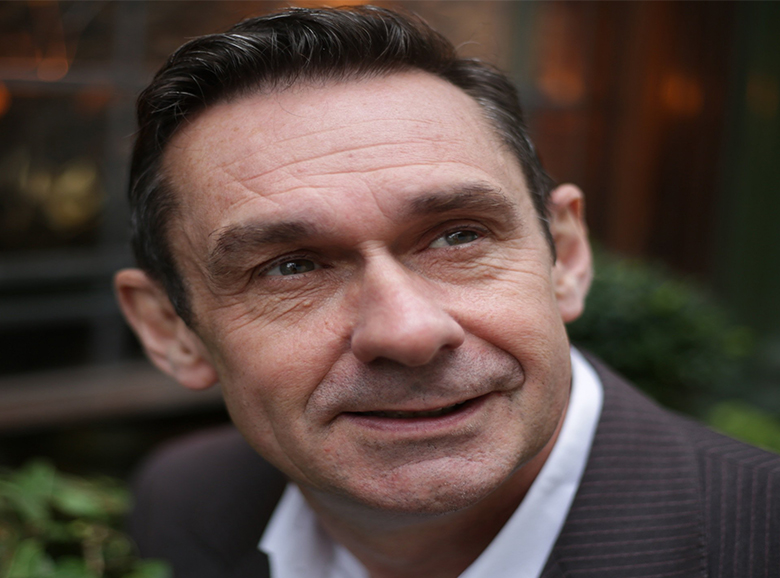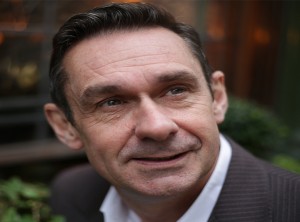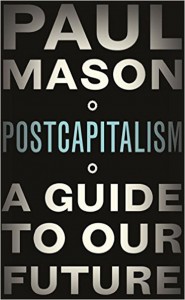
Information Technology can remould global economics

Over the past two centuries, the capitalism has undergone constant changes and economical cycle which lurch from boom to bust and always has emerged transformed and strengthened. Paul Mason an economic editor at Channel 4 News and Guardian columnist believes that after two decades the western capitalism which dominated the world, this economic system has become dysfunctional, and passed its sell by date, with inequality growing, angry irate voters, never ending debt burdens. According to Paul “Capitalism is a complex, adaptive system which has reached the limits of its capacity to adapt and once Capitalism can no longer adapt to technological change, post capitalism become necessary”.
This book is a must read for all who love current capitalism, and to ignore this is foolish, as Mason explains post capitalism deserves a wide readership among right and left alike.
Capitalism has not kept pace with technology, as automation is now replacing jobs at lightning speed. The IT revolution is that information goods are corroding the market’s ability to form prices accurately. Mason argues that “cyber information can be freely replicated endlessly like there is no constraint on how many times we can copy and past a Wikipedia page. “until we had shareable information goods , the basic law of economics was that everything is in demand and scarce. Now certain things are not scarce, they are abundant.”. People are collaborating by self-interest and price things according to supply and demand.
The Wikipedia –is the biggest information product in the world made by 27,000 volunteers for free and Mason estimates “if it were run as a commercial site, it would generate a revenue of £ 1.82 bn ($2.8bn )a year. Yet it chose not to make any profit and by doing so it makes it impossible for anyone else to make a profit on the same space.”
Mason thinks it is high time to give credit where it is due and recognise that technology has converted us all into individuals connected by networks in a strongest possible way.
He wants to use the power of millions of individuals to build a more just and equal world which is certainly not dominated by uncontrolled markets.. Mason’s vision in the post capitalist world is a place where only part of the population work for cash, on a voluntary basis and the rest will be following non-monetary goals. He also wants all governments to provide an assured income for the entire population and provide either free or low cost services and public infrastructure. He also wants company to automate all essential processes instead relying on cheap labour, and central bankers to focus on reducing national debts. He wants the governments to provide the framework and environment so that individuals can flourish, but state functions are handed over to citizens. His ideal world is a place where people’s future are secure and equal so that remaining efficiencies can be used for achieving worthy goals. Just look at the opposition faced by Uber, a progressive cost effective car hire firm on the internet and lack of security for workers.
In a world of high speed technological changes, we need rethink our old assumptions about left and right. Cyberspace is throwing cold water into many government ideas and the caste and class system, Both the politicians and the people who vote them to power should change and make a note of post capitalism.
Over the past two centuries, the capitalism has undergone constant changes and economical cycle which lurch from boom to bust and always has emerged transformed and strengthened. Paul Mason an economic editor at Channel 4 News and Guardian columnist believes that after two decades the western capitalism which dominated the world, this economic system has become dysfunctional, and passed its sell by date, with inequality growing, angry irate voters, never ending debt burdens. According to Paul “Capitalism is a complex, adaptive system which has reached the limits of its capacity to adapt and once Capitalism can no longer adapt to technological change, post capitalism become necessary”.
This book is a must read for all who love current capitalism as Mason explains post capitalism deserves a wide readership among right and left alike.
Capitalism has not kept pace with technology, as automation is now replacing jobs at lightning speed. The IT revolution is that information goods are corroding the market’s ability to form prices accurately. Mason argues that “cyber information can be freely replicated endlessly like there is no constraint on how many times we can copy and past a Wikipedia page. “until we had shareable information goods , the basic law of economics was that everything is in demand and scarce. Now certain things are not scarce, they are abundant.”. People are collaborating by self-interest and price things according to supply and demand.
The Wikipedia –is the biggest information product in the world made by 27,000 volunteers for free and Mason estimates “if it were run as a commercial site, it would generate a revenue of £ 1.82 bn ($2.8bn )a year. Yet it chose not to make any profit and by doing so it makes it impossible for anyone else to make a profit on the same space.”
Mason thinks it is high time to give credit where it is due and recognise that technology has converted us all into individuals connected by networks in a strongest possible way.
He wants to use the power of millions of individuals to build a more just and equal world which is certainly not dominated by uncontrolled markets.. Mason’s vision in the post capitalist world is a place where only part of the population work for cash, on a voluntary basis and the rest will be following non-monetary goals. He also wants all governments to provide an assured income for the entire population and provide either free or low cost services and public infrastructure. He also wants company to automate all essential processes instead relying on cheap labour, and central bankers to focus on reducing national debts. He wants the governments to provide the framework and environment so that individuals can flourish, but state functions are handed over to citizens. His ideal world is a place where people’s future are secure and equal so that remaining efficiencies can be used for achieving worthy goals.
Just look at the opposition faced by Uber, a progressive cost effective car hire firm on the internet and lack of security for workers.
In a world of high speed technological changes, we need rethink our old assumptions about left and right. Cyberspace is throwing cold water into many government ideas and the caste and class system, Both the politicians and the people who vote them to power should change and make a note of post capitalism.
Post Capitalism A guide for the future by Paul Mason, Published by Allen Lane £11.89
ISBN 9781846147388
Pages 368

